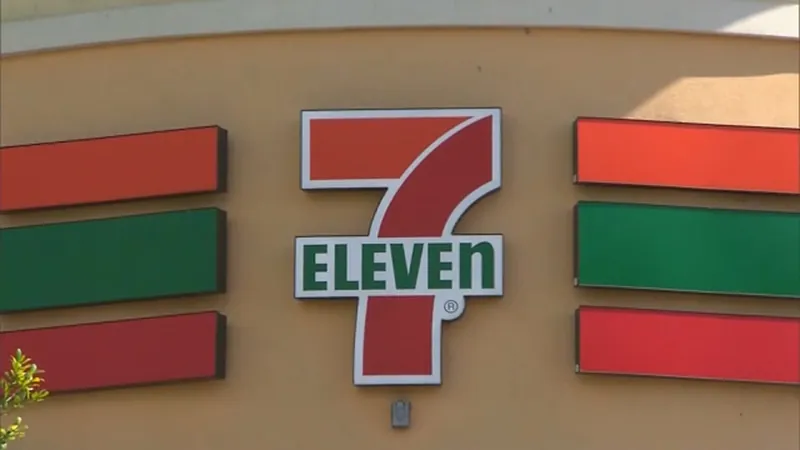
7-Eleven to Close Over 400 Locations in North America: What You Need to Know
2024-10-14
Author: Kai
Introduction
In a significant move, 7-Eleven is set to shut down 444 underperforming stores across North America. The announcement comes from its parent company, Japan’s Seven & I Holdings, which cited multiple factors contributing to these closures in its recent earnings report.
Current Economic Climate
Despite a general resilience in the North American economy, 7-Eleven has observed concerning trends. Sales are slowing, foot traffic is dwindling, and inflationary pressures are weighing heavily on consumers. Middle- and low-income earners are particularly feeling the pinch, leading to a more cautious approach to spending. In August, customer traffic declined by 7.3%, marking six consecutive months of reduced visits to stores.
Changing Consumer Behavior
A significant shift in consumer behavior is also evident, especially in the sales of tobacco products. Cigarette sales, once a cornerstone of convenience store profits, have plummeted by 26% since 2019. While there has been an uptick in the popularity of alternative nicotine products such as Zyn, it has not compensated for the decline in traditional cigarette sales.
Impact of Closures
No specific list of the affected locations has been disclosed, but with over 13,000 stores across the U.S., Canada, and Mexico, the closures represent approximately 3% of its overall portfolio. Neil Saunders, retail analyst and managing director at GlobalData Retail, characterized these closures as a “gentle pruning” necessary for maintaining efficiency and profitability amid changing market conditions and growing competition.
Future Strategy
As the convenience store landscape evolves, 7-Eleven plans to pivot its strategy, focusing more on food sales, which have emerged as the highest revenue category and a major draw for customers. Competing chains such as Wawa and Sheetz are outperforming 7-Eleven in customer satisfaction metrics, indicating a growing demand for enhanced offerings in the convenience sector.
Market Dynamics
Adding complexity to the situation is the increased interest in 7-Eleven from Circle-K owner Couche-Tard, which recently upped its takeover bid to $47.2 billion, highlighting the strategic importance of the convenience store giant in today’s retail market.
Conclusion
As 7-Eleven navigates these changes, the focus on optimizing its portfolio and investing in food offerings suggests a keen awareness of evolving consumer preferences and market dynamics. Will these changes help the franchise regain its footing, or are more closures on the horizon? Stay tuned as this story develops!

 Brasil (PT)
Brasil (PT)
 Canada (EN)
Canada (EN)
 Chile (ES)
Chile (ES)
 España (ES)
España (ES)
 France (FR)
France (FR)
 Hong Kong (EN)
Hong Kong (EN)
 Italia (IT)
Italia (IT)
 日本 (JA)
日本 (JA)
 Magyarország (HU)
Magyarország (HU)
 Norge (NO)
Norge (NO)
 Polska (PL)
Polska (PL)
 Schweiz (DE)
Schweiz (DE)
 Singapore (EN)
Singapore (EN)
 Sverige (SV)
Sverige (SV)
 Suomi (FI)
Suomi (FI)
 Türkiye (TR)
Türkiye (TR)